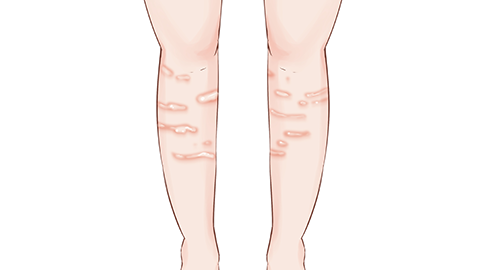What Causes Knee Pain in Men?
Generally speaking, the knee refers to the knee joint. Knee pain in males may be caused by factors such as cold exposure, chronic strain, ligament sprain, osteoarthritis, or meniscus injury. The solution depends on the specific cause and medical consultation should be sought promptly, following the doctor's instructions for treatment. Details are as follows:

1. Cold exposure: When males are exposed to cold environments for prolonged periods or wear insufficient clothing, the knee joints may be easily affected by cold stimulation, causing local vasoconstriction and slowed blood circulation, which can lead to knee pain. Additionally, cold conditions may exacerbate inflammatory responses in the knee joint, further intensifying pain. It is important to keep warm, wear appropriate clothing, and avoid staying in cold environments for long durations.
2. Chronic strain: Men who engage in heavy physical labor or frequently perform activities involving the knee joint may experience excessive wear on the knee joint, leading to soft tissue damage and degenerative changes in the articular cartilage, which can cause knee pain. Reducing knee joint activity and avoiding excessive fatigue is recommended.
3. Ligament sprain: A ligament sprain refers to damage to the ligaments around the knee joint due to overstretching or trauma, often related to vigorous exercise or injury. Ligament sprains can cause knee pain, possibly accompanied by knee joint swelling. Pain-relieving and blood circulation-improving medications such as ibuprofen sustained-release capsules, hemostatic and analgesic capsules, and dahuluonang capsules should be used following medical advice.
4. Osteoarthritis: Osteoarthritis is a chronic joint disease mainly characterized by degenerative changes in the articular cartilage and bone spurs. When osteoarthritis affects the knee joint, severe cartilage wear and narrowing of the joint space can cause knee pain, possibly accompanied by joint stiffness. Anti-inflammatory medications such as amoxicillin capsules, diclofenac sodium sustained-release tablets, and celecoxib capsules should be used under a doctor's guidance.
5. Meniscus injury: The meniscus is a cartilage structure within the knee joint that serves to cushion and stabilize the joint. When the meniscus is injured due to trauma or long-term wear, damage can occur, causing knee pain, possibly accompanied by joint locking. Medications such as sanqi tablets, dahuluowan, and oryzanol tablets should be used as directed by a physician to achieve hemostatic, analgesic, and cartilage-nourishing effects.
During treatment, it is important to follow medical advice, take medications on time, and adjust lifestyle habits and dietary patterns to promote recovery.
References:
[1] Chen Xiaoping, Wang Jianping, Zhao Jizong. Surgery [M]. 9th ed. Beijing: People's Medical Publishing House, 2018:785-792.
[2] Wang Kunzheng. Orthopedics [M]. 2nd ed. Beijing: People's Medical Publishing House, 2019:650-655.










